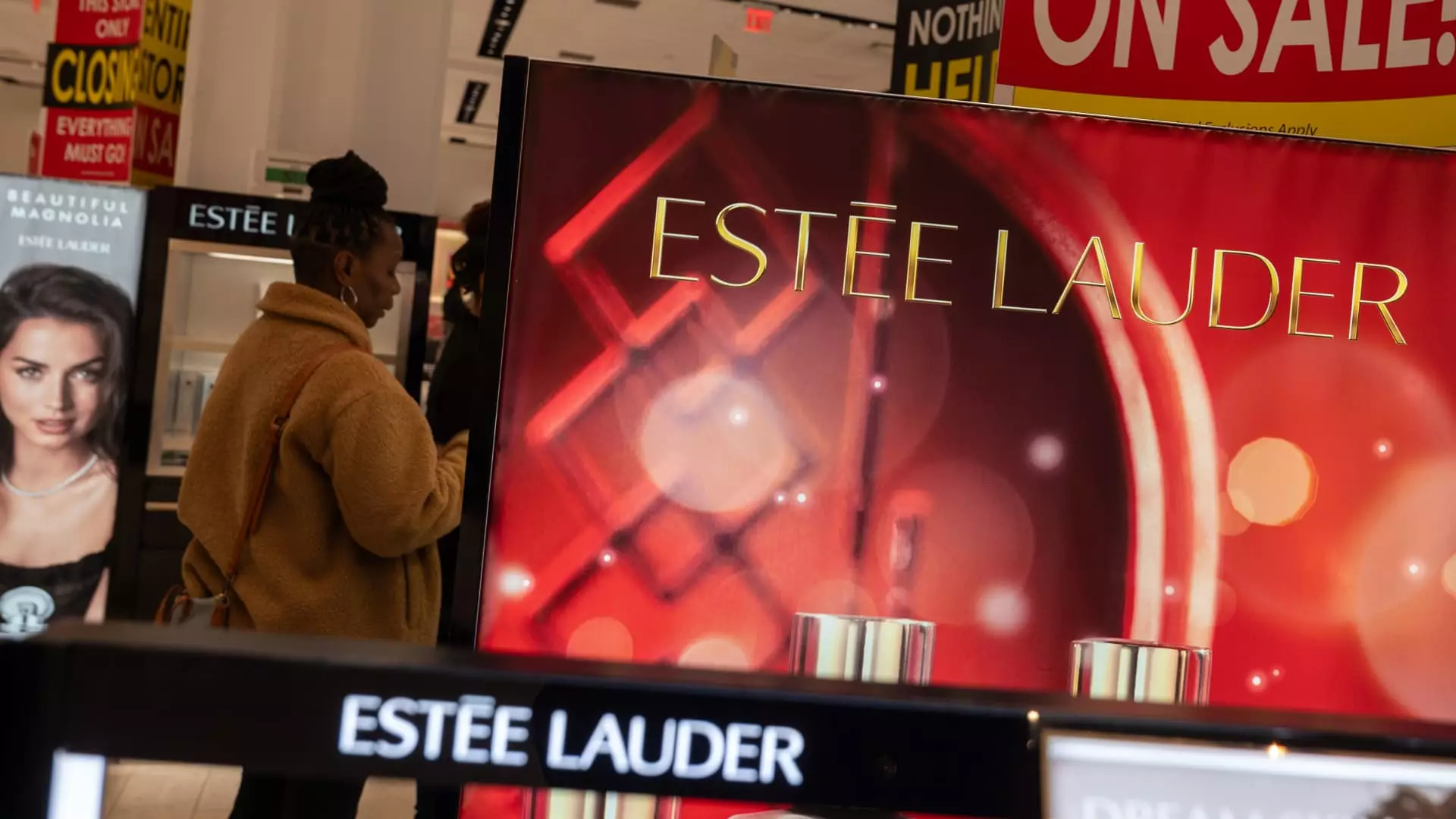This week has proved disastrous for numerous companies within the beauty sector, with E.l.f. Beauty and Estee Lauder experiencing significant stock declines following disappointing earnings reports. Investors were rattled as E.l.f. Beauty faced its most significant weekly plunge since August 2018, dropping by nearly 29%. Although the company reported a revenue increase for its fiscal third quarter, it fell short regarding adjusted earnings per share and subsequently revised its yearly sales forecast downward—from a previous estimate of $1.32 billion to just $1.31 billion.
CEO Tarang Amin’s comments about overall declines in the cosmetics sector provide further insight into the broader challenges affecting beauty brands. He attributed the downturn to a “post-holiday hangover” from excessive discounting practices and reduced consumer engagement with beauty products online. This cautious outlook inevitably led analysts from several prominent financial institutions, including Morgan Stanley and UBS, to downgrade E.l.f.’s stock ratings, signaling a concerning trend for investors.
Estee Lauder, another major player in the beauty market, also faced turmoil this week, with its shares plummeting 22%—its steepest decline since November. Despite surpassing revenue expectations for the second quarter, the company’s announcement of a substantial workforce reduction, forecasting job cuts between 5,800 and 7,000 by the end of fiscal 2026, overshadowed any positive news. This strategic move highlights the company’s struggles with declining travel retail demand in Asia, further dampening investor sentiment.
On the earnings call, new CEO Stéphane de La Faverie candidly acknowledged the company’s inertia in tapping into higher-growth avenues. Such frankness is disconcerting for stakeholders, as it emphasizes the failure to adapt to ever-changing market dynamics. As a result, the panic in the market led to overall declines in other major beauty stocks, including Ulta Beauty and Coty.
Ulta Beauty and Coty also encountered significant decreases, shedding 9% and nearly 8% of their stock values, respectively. For Ulta, this marked its most troubling week since April, while Coty faced its worst performance in months. Factors contributing to this downturn include reduced consumer interest, as noted by E.l.f. Beauty’s CEO regarding Ulta’s sales.
The beauty industry is not only grappling with shifting consumer preferences but is also facing external pressures such as trade tariffs. With China announcing tariffs on select U.S. imports as retaliation against U.S. trade policies, companies heavily reliant on Chinese manufacturing—like E.l.f., which produces 80% of its products there—are left anxious about potential profit erosion. Although Amin expressed relief at the lower-than-anticipated tariffs, the uncertainty still looms large.
In summation, these recent developments underscore the heightened vulnerability of the beauty sector, reflecting both internal management challenges and external market pressures. As companies reassess their strategies to regain agility and consumer interest, the road ahead remains uncertain. Investors and market watchers will be keenly observing how these brands adapt to an evolving landscape fraught with competition, economic fluctuations, and geopolitical tensions. The beauty industry must navigate these challenges carefully to emerge resilient and poised for future growth.


Leave a Reply